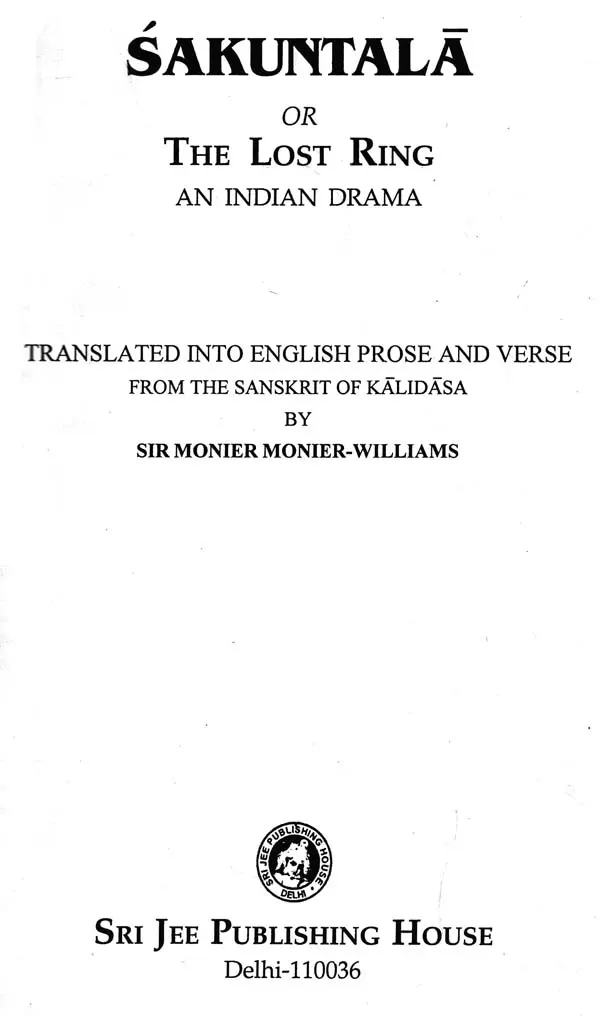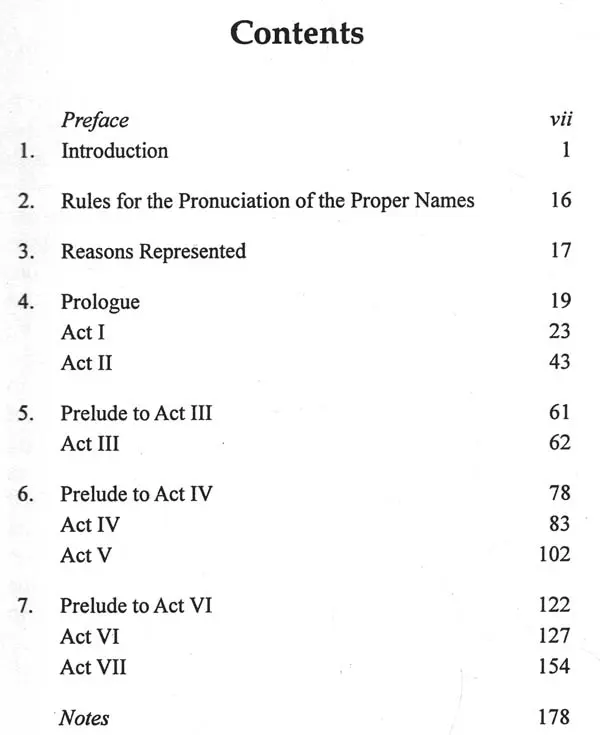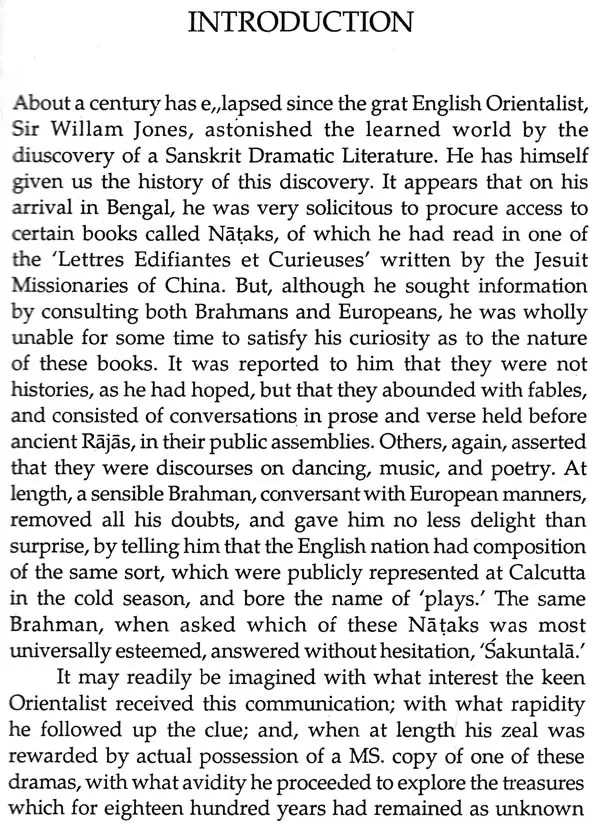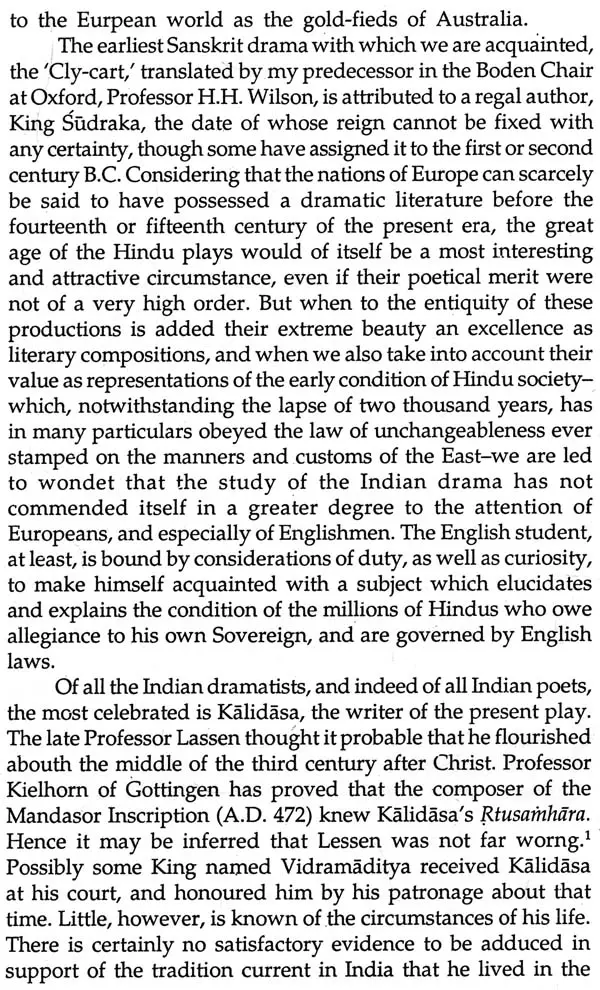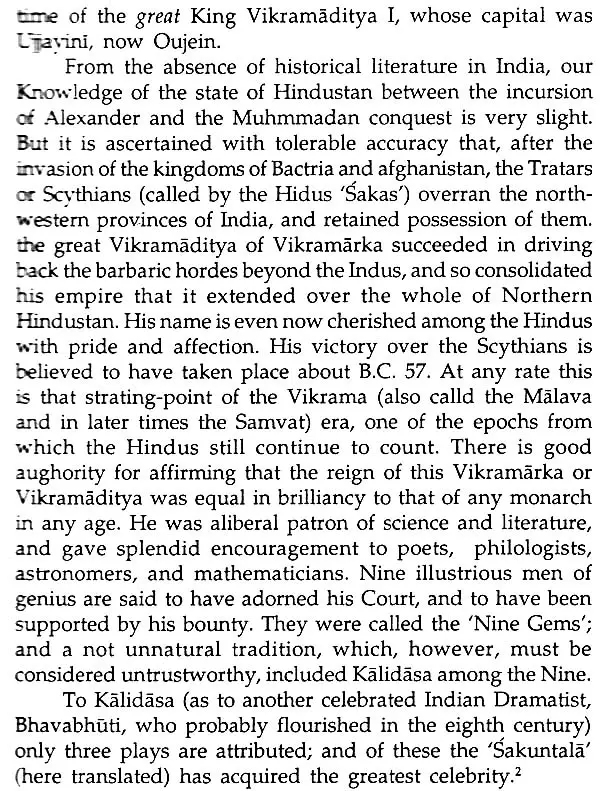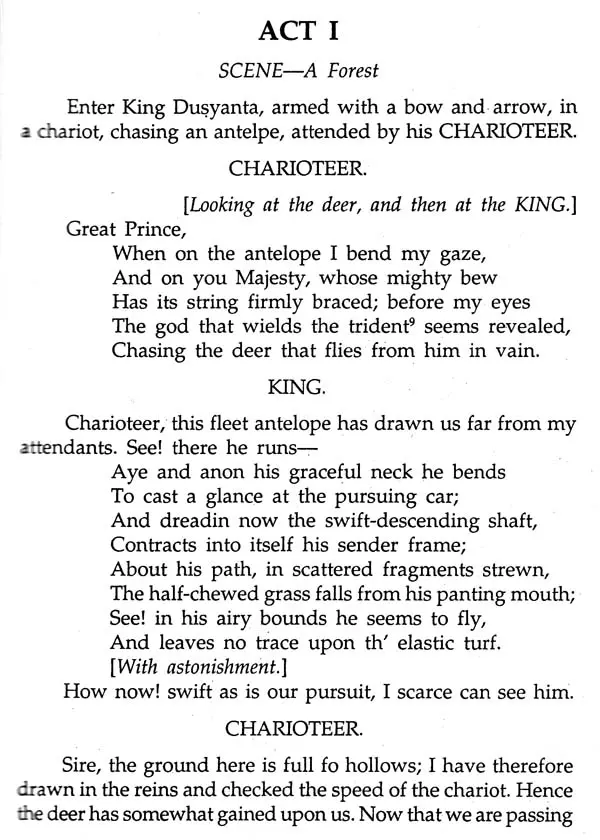About the Book The public were kind enough to pronounce it a success. In many cases the applause given was not so much for the acting as for the beauty of your The Hindus have a great liking for this play, and not one of the enlightened Hindu community will fail to acknowledge your translation to be a very perfect one. Our object in acting Hindu plays is to bring home to the Hindus the good lessons that our ancient authors are able to teach us. If there is one lesson in these days more than another which familiarity with the fountains of Western literature constantly. Forces upon the mind, it is that our age is turning its back on time honoured creeds and dogmas. We are hurrying forward to a chaos in axioms of morality, may in the end be submerged; and as the general tenor of Indian thought among the educated community is to reject everything that is old, and equally blindly to absorb everything new, it becomes more and more an urgent question whether any great intellectual or moral revolution, which has no foundations in the past, can product lasting benefits to the people.
Preface The fact that the following translation (first published in 1855) of India's most celebrated drama has gone through seven editions, might reasonably have absolved me from the duty of revising it.
Three years ago, however, I heard that Sir John Lubbock had thought "Sakuntala' worthy of a place among the Hundred best books of the world, and had adopted my version of the original. I therefore undertook to go through every line and once again compare the translation with the Sanskrit, in the hope that I might be able to give a few finishing touches to a performance which, although it had been before the public for about forty years, was certainly not perfect. The act of revision was a labour of love, and I can honestly say that I did my best to make my representation of Kalidasa’s immortal work as true and trustworthy as possible.
Another edition is now called for, but after a severely critical examination of every word, I have only detected a few minor unimportant points-and those only in the Introduction and Notes-in which any alteration appeared to be desirable. Indeed it is probable that the possessors of previous editions will scarcely perceive that any alterations have been. made anywhere.
Occasionally in the process of comparison a misgiving has troubled me, and I have felt inclined to accuse myself of having taken, in some cases, too great liberties with the Sanskrit original. But in the end I have acquiesced in my first and still abiding conviction that a literal translation (such as that which I have given in the notes of my edition of the Sanskrit text) might have commended itself to Oriental students, but would not have given a true idea of that beauty of India's most cherished drama to general readers, whose minds are cast in a European mould, and who require a translator to clothe Oriental ideas, as far as practicable, in a dress conformable to European canons of taste.
Introduction About a century has elapsed since the great English Orientalist, Sir William Jones, astonished the learned world by the discovery of a Sanskrit Dramatic Literature. He has himself given us the history of this discovery. It appears that on his arrival in Bengal, he was very solicitous to procure access to certain books called Nataka, of which he had read in one of the 'Letters Edifiantes et Curieuses' written by the Jesuit Missionaries of China. But, although he sought information by consulting both Brahmans and Europeans, he was wholly unable for some time to satisfy his curiosity as to the nature of these books. It was reported to him that they were not histories, as he had hoped, but that they abounded with fables, and consisted of conversations in prose and verse held before ancient Rajas, in their public assemblies. Others, again, asserted that they were discourses on dancing, music, and poetry. At length, a sensible Brahman, conversant with European manners, removed all his doubts, and gave him no less delight than surprise, by telling him that the English nation had composition of the same sort, which were publicly represented at Calcutta in the cold season, and bore the name of 'plays.' The same Brahman, when asked which of these Nataka was most universally esteemed, answered without hesitation, 'Sakuntala.'
**Contents and Sample Pages**
